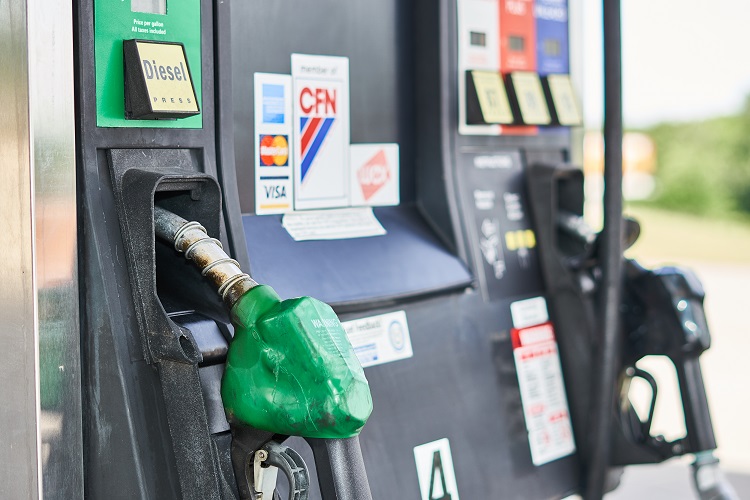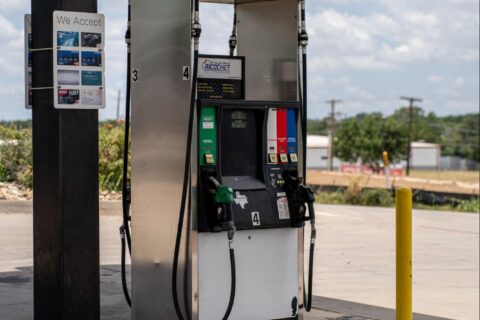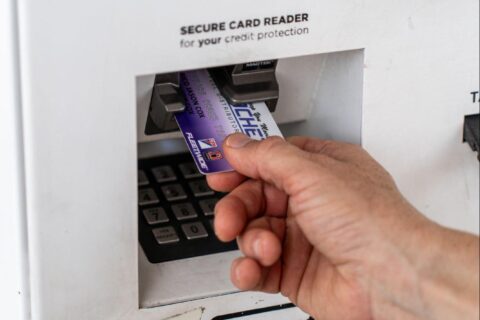Why Choose Fuel Cards Over Traditional Payment Methods?
More and more businesses are adopting business fuel cards as their preferred method for managing fleet fuel expenses. Offering a secure, flexible, and efficient payment solution, fuel cards have quickly become an invaluable tool for companies with mobile workforces. But what exactly sets fuel cards apart from traditional payment modes like cash and credit cards? In this blog, we explore the key differences between fuel card vs. traditional payment and highlight the numerous benefits of choosing fuel cards over conventional payment options.

Traditional Fuel Payment Methods: Cash and Credit Cards
Flexibility with Limitations
Cash and credit cards have long been the go-to methods for fueling company vehicles. Their flexibility allows drivers to fuel up at any convenient location, and the familiarity of these payment methods means they are easy to use and understand. Some businesses even leverage credit cards for additional perks like cashback rewards. However, despite their advantages, these traditional methods come with significant drawbacks that can impact the efficiency and security of fleet management.
Disadvantages of Cash and Credit Cards for Fleet Fuel Purchases
- Vulnerability to Fraud, Theft, and Misuse: While cash and credit cards are flexible, they are also highly susceptible to theft and misuse. Cash, once stolen, is gone for good. Although credit cards offer some level of fraud protection, they lack the custom controls needed to manage fuel spending effectively, leaving room for potential misuse by drivers.
- Manual Expense Reporting: Cash transactions require drivers to manually collect receipts, which then need to be entered into the system manually, creating a labor-intensive process prone to errors. Credit cards may provide basic online records, but they do not capture essential mileage data, making comprehensive expense tracking challenging.
- Lack of Real-Time Insight: Traditional fuel payment methods often result in delays between the time a fuel purchase is made and when the data is reviewed. This lag means inefficient purchasing habits can go unnoticed for months, leading to prolonged periods of unnecessary expenses.
- No Options for Performance Monitoring: Without mileage data, businesses miss out on valuable insights into fuel efficiency and vehicle performance. This lack of information can prevent the early detection of maintenance issues and hinder efforts to optimize fleet operations.
What Are Fuel Cards?
A Purpose-Built Solution
Fuel cards are electronic payment tools designed specifically for purchasing fuel and maintenance services for company vehicles. They resemble credit or debit cards but include additional features tailored to fleet management. To use a fuel card, drivers simply swipe the card at the pump and enter a personalized PIN and odometer reading. Behind the scenes, business fuel cards offer several advantages over traditional payment methods.
How Do Fuel Cards Work?
Fuel cards operate within a private payment network of fuel stations, typically covering over 95% of gas stations across the United States. When a driver makes a fuel purchase, transaction details are automatically uploaded to a web portal in real time. This allows businesses to monitor and manage fuel expenses, generate reports, and oversee card usage through a centralized platform. Drivers can also manage their cards via a mobile app, adding an additional layer of security and convenience.
Fuel Cards Benefits
Enhanced Security and Control
Fuel cards offer robust tools to protect against fraud and misuse. Businesses can set custom spending limits, restrict transactions to specific geographic areas, and control the time of day purchases can be made. These features significantly reduce the risk of unauthorized spending and help ensure that fuel funds are used appropriately.
Automated Reporting
With business fuel cards, the days of manual receipt collection and data entry are over. Transaction data is automatically recorded and includes crucial mileage information. This automation ensures accuracy and provides up-to-date expense reports, simplifying the administrative burden and streamlining tax reporting.
Real-Time Tracking
Fuel cards enable businesses to track fuel purchases in real time. This immediate access to transaction data allows for the quick identification and resolution of fuel use issues, preventing inefficiencies from accumulating over time.
Performance Monitoring
By capturing mileage data, corporate fuel cards provide valuable insights into driver behavior, fuel card savings and vehicle performance. Poor fuel efficiency may indicate inefficient driving habits or underlying maintenance issues. With this information, businesses can take proactive measures to enhance fleet performance and lower operational costs.
Why Businesses Should Adopt Fuel Cards
Cost Savings
Implementing corporate fuel cards can lead to substantial cost savings. Enhanced spending controls and performance monitoring help prevent misuse and identify areas for improvement, potentially saving hundreds and thousands of dollars every year.
Operational Efficiency
Fuel cards streamline administrative tasks through automated data collection and reporting, freeing up time for more strategic activities. Real-time data access enables proactive management of fuel expenses and fleet performance, further enhancing operational efficiency.
Risk Reduction
The advanced security features of business fuel cards significantly lower the risks associated with traditional payment methods. Customizable controls and fraud monitoring provide peace of mind and ensure that fuel funds are used appropriately.
Scalability
Fuel cards are suitable for businesses of all sizes, from small companies with a few vehicles to large enterprises with nationwide fleets. Their scalability makes them a versatile solution for diverse business needs.
Hidden Costs of Traditional Payment Methods
A lot of companies make use of traditional methods while making fuel purchases like credit or cash cards. Unfortunately, these methods have hidden costs that can easily spike the overall bills like:
- Interest rates and hidden charges: Credit cards tend to have high interest rates, and loitering extra fees, which build up over time. Fuel cards, however, allow users to spend solely on fuel without incurring extra charges.
- Administrative costs: Manual processes such as receipt collection and reimbursement take time and effort. Fuel cards automate this process of tracking and reporting, hence reducing paperwork and administrative costs.
- Constant fuel price changes: Prices for fuel can change multiple times a day, making it impossible for companies to predict expenses. Some fuel card providers offer price protection or discounts that make it easier to control fuel expenses for a company.
By switching to fuel cards, businesses can avoid these hidden costs and streamline their fuel management.
Common Myths About Fuel Cards Debunked
There are many misconceptions about fuel cards that prevent some businesses from taking advantage of their benefits. Below are common myths debunked.
-
“Fuel cards are only for large fleets.”
With this, many small businesses tend to believe that fuel cards are only beneficial for large trucking companies. But then small businesses can also benefit by keeping a tighter lid on expenses, controlling fuel usage, and taking a shot very much with discounts. Moreover, many providers are flexible in their offerings, especially targeted at smaller fleets.
-
“They are just like credit cards.”
Unlike credit cards, which simply allow businesses to get loans, fuel cards are set up with many features that create detailed reports of transactions, spending controls, and security features tied to fuel purchases. In this way, businesses can put limits on drivers as far as how much they can spend on fuel; moreover, fuel purchases can be excluded from transaction limits.
-
“Fuel cards limit driver freedom.”
Some companies would think that fuel cards will constrain their drivers. But in reality, fuel cards provide freedom to the driver to fill up in whatever way they see fit as long as they keep the expenses line under control. Additionally, quite a few universal fuel cards work through a wide network of different fuel stations.
Conclusion
Fuel cards offer a secure, efficient, and cost-effective alternative to traditional payment methods for managing fleet fuel expenses. With enhanced security features, automated reporting, real-time tracking, and performance monitoring, fuel cards provide businesses with the tools needed to optimize fleet management and reduce operational costs. If you’re looking to improve your company’s fuel expense management, consider switching to fuel cards.
For more information and to see how corporate fuel cards can benefit your business, visit Ricochet Fuel Distributors.


